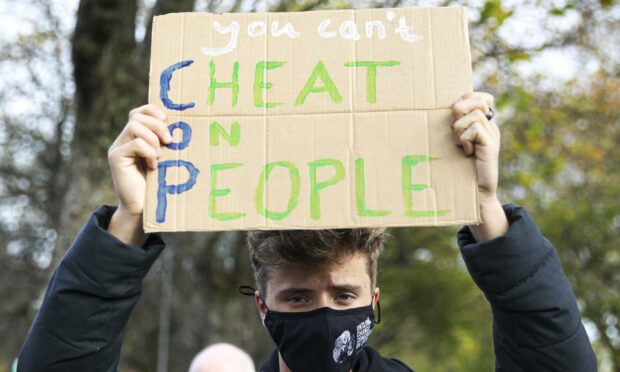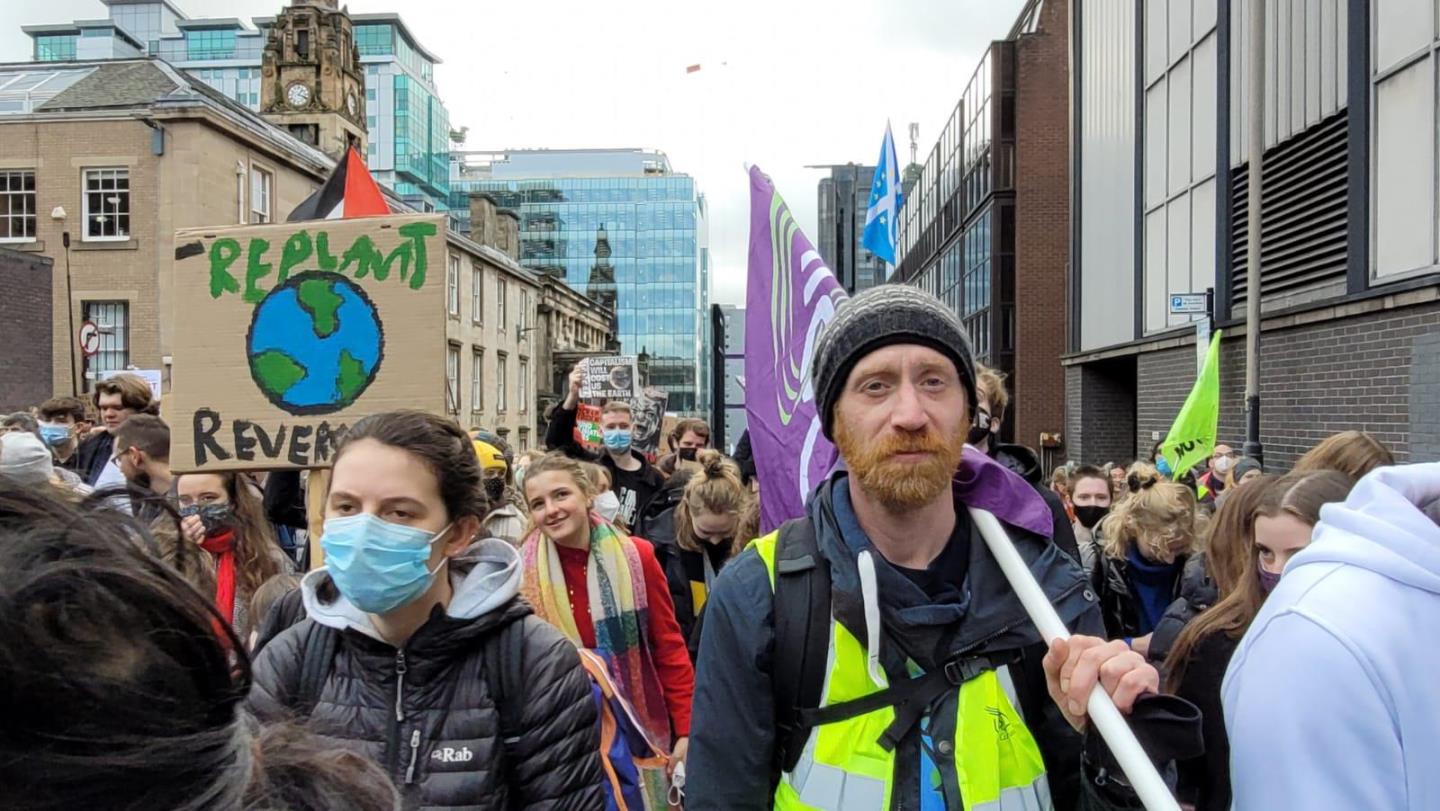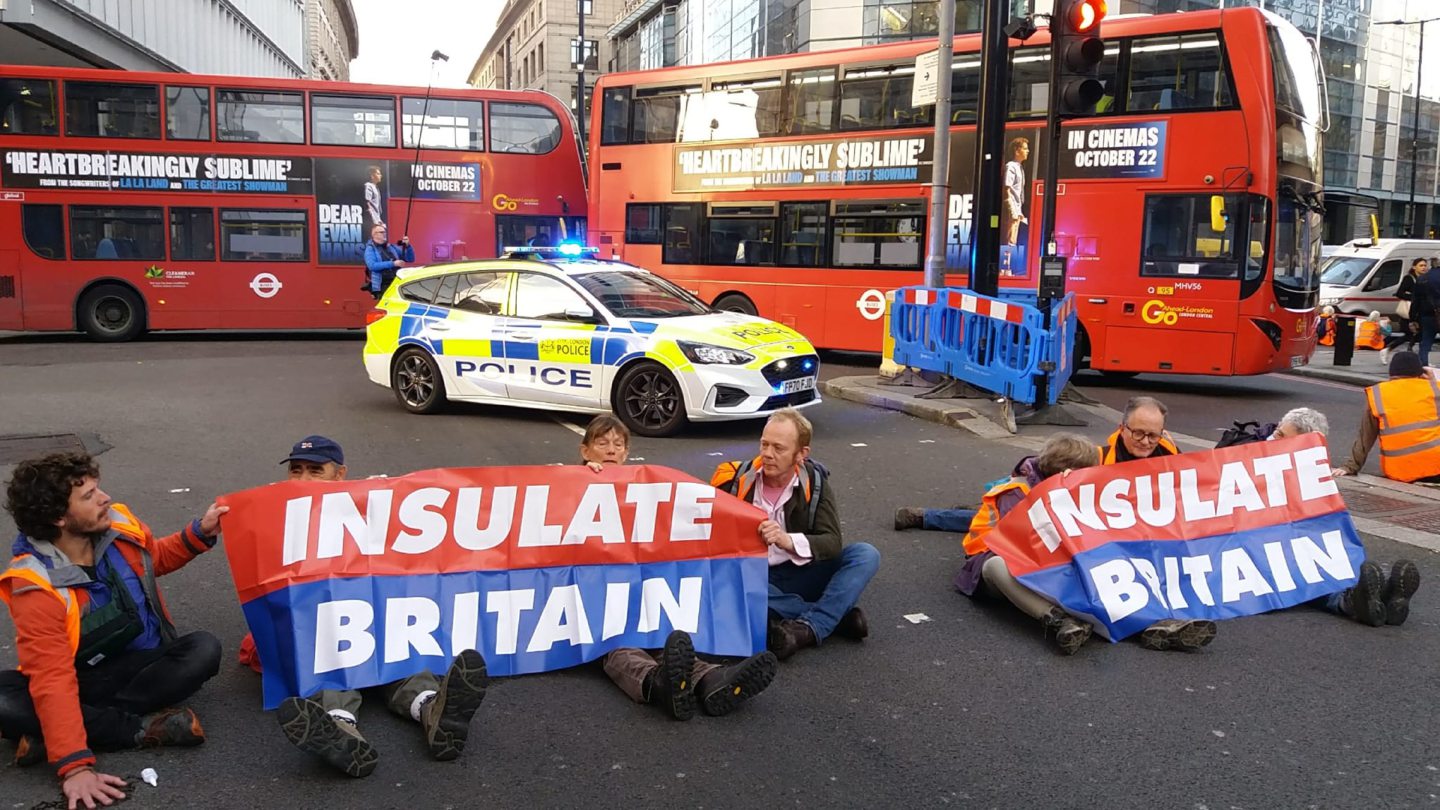The relationship between the trade union and climate movements is often reduced to cliché.
Workers are said to be narrowly focused on retaining their jobs in dying industries, while “privileged” climate activists refuse to think about how the transition away from fossil fuels will affect the livelihoods of ordinary people. But what we have seen at COP26 in Glasgow is confounding all the stereotypes.
As negotiations kicked off, hundreds of Glasgow City cleansing workers went on strike over poor pay and conditions – the culmination of a decade of austerity and a reported terrible “bullying” work culture.
The scenes on the picket lines have been inspiring. Hundreds of climate activists have travelled across the city to various depots to show their solidarity, bringing plenty of noise and colour with them. It has undeniably given the workers a morale boost and shown the strength of feeling around their cause to Glasgow City Council.
But the solidarity shouldn’t be surprising. Why? Because the climate movement and the trade union movement are both fighting the same system.
Human beings are seen as raw materials in pursuit of profit
Fossil fuel corporations extract oil and gas for profit at the expense of our natural world, while bosses exploit and profit off our labour by driving down wages and conditions. In our capitalist system, human beings and the world we live in are just seen as raw materials in the pursuit of profit.
This means the fight to radically change our society to one in which our life-support systems and natural world are sustained, is the same as the battle to ensure human beings are valued adequately for the work that they do. It is all one struggle.
It’s because of this shared experience that millions of trade unionists like myself will across the world be joining the Global Day of Action for Climate Justice on Saturday 6 November. I am a social care worker, Unison member and a Glasgow Trades Union Congress (TUC) delegate to COP26 – and I urge every single trade unionist and their family to get out this weekend and have their voices heard.
📢 6 Nov, while world leaders meet for #COP26, thousands of people across the world will take to the streets to demand #ClimateJustice.
Join a local action and our digital rally. Speakers include @GretaThunberg, @IlhanMN, @NaomiAKlein, @vanessa_vash
👉 https://t.co/tuzbiW3s7y pic.twitter.com/EXPqel0z3V
— COP26 Coalition (@COP26_Coalition) October 27, 2021
My experience this week at the conference – where the global elite have clearly signalled they are unwilling to break with an extractive, destructive model of capitalism – has confirmed to me that fossil fuels will only be kept in the ground under the pressure of a mass climate movement. I will be joined by hundreds of other trade unionists from Glasgow – some of whom will be cleansing workers repaying the favour after experiencing the solidarity of climate activists this week.
As trade unionists, we also must see this as an opportunity to send a signal to younger generations. This is a threat which will dominate their adult lives and, as the youth climate strikes have shown, is a political issue that they know must be addressed.
If they aren’t already, they will also soon be in paid work – perhaps in the gig economy, as lots of young workers are – where they will likely be overworked and exploited. If the trade union movement is to blossom, we desperately need to organise these younger workers – but we’ll only have the authority to do so if we lead on political issues important to them, such as the climate crisis.
Fighting climate change will improve quality of life
We have to think clearly about our own industries and how they contribute to carbon emissions. My job itself has a relatively low carbon footprint. The carbon-intensive parts are my travel to and from work, as well as the buildings I work in and how energy efficient they are.
When it comes to transport, it’s clear that we must shift away from the model of the private car and to a public transport system that is universal and cheap. But we also have to ensure our workplaces and homes are insulated so that they are energy efficient.
Critics of Insulate Britain would have you believe that this is an issue only a small bunch of climate activists care about. But, along with bringing buses into public ownership, and renewable supply chains, the Scottish TUC has made it a priority to campaign for a municipally run retrofitting scheme.
Not only would this measure have the impact of reducing carbon emissions, but it would also dramatically cut domestic energy bills and, ultimately, improve the quality of life of millions of people.
And this is what it comes down to. A sustainable future for the planet is one where power and resources are distributed equitably.
A cheaper, cleaner world – where workers have greater democratic control over how their work and the society they live in functions – is a world that is less carbon intensive.
To reach that point, we must take on our exploitative, profit-driven system and the ruling elite who prop it up. But we can only do that if we do it together.
Stuart Graham is a member of Glasgow City UNISON and Free Our City, the campaign for free public transport in Glasgow


